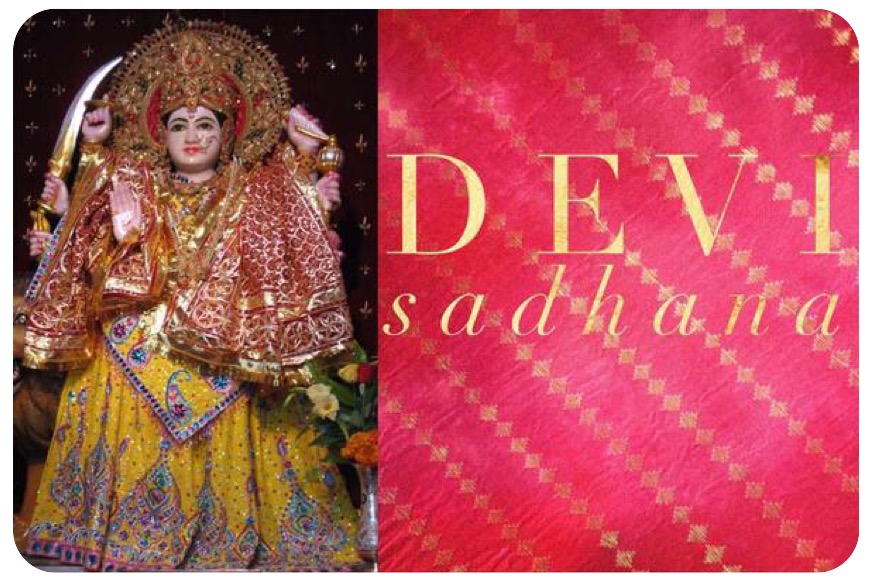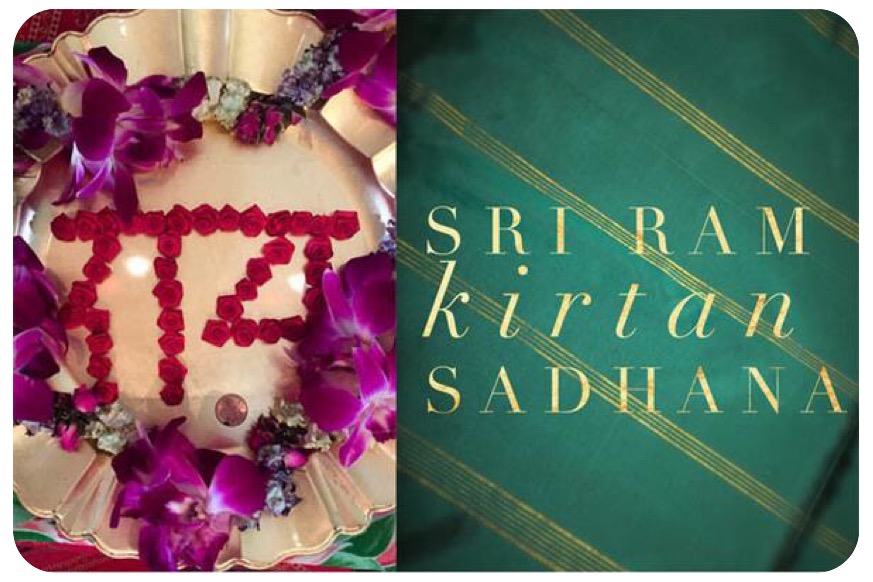
Podcast: Play in new window | Download
Subscribe: Apple Podcasts | Spotify | Amazon Music | Email | RSS
Ep.11 ~ Well Being
“One time, an old lady came to Maharajji, and she said, “Baba, show me God. Show me God, Baba.” And she was all emotional. Baba said, “Ok, Ma. Not now. Go away.” So later, at the end of the day, see she had come from a local town, and at the end of the day, she had to catch the bus back to her family, so at the end of the evening, she comes back to pranam to say goodbye to Maharajji and catch the bus. So she bows down and Maharajji says, “Ok, Ma, come here. I’m going to show you God now.” “Not now Baba, I have to go home!”
That’s where we are. You know? We want that, but not now, I’m too busy, I have a movie to go to. I have a date tonight, I can’t do that. So, just, you know, be good to yourself. Learn how to do that. Learn how to be good to yourself.”- Krishna Das
Transcription:
Q: In difficult situations, whether we’re out and about or with our coworkers or families, how to, maybe it’s just a momentary thing, maybe, can you offer some suggestions to, like, to bring our mind back to peace other than being with you now, which, as you said, it almost, like when you’re with, in the right situation, it brings you home and there’s that safety there, but when you’re out in the world, what do you do when you’re in a crowded situation to bring yourself back to a better place?
KD: When are you not out in the world? Seriously. When? When you’re home? Our mind is working just the same. So, what I hear is there’s some judgement about you feel less connected to yourself when you’re out with other people and busy and reacting to their stuff. So what? It doesn’t matter. The point is you have to do practice. I’m sorry. Really, I’m sorry. I’m sorry for myself. It’s very important to spend a little time, well, it’s important to recognize what you’re trying to accomplish. It’s a huge thing we’re trying to accomplish here. Look, we’re born, we pop out, we drink some milk, then we get to coffee, then we get to beer, then we die. And we never notice what’s going on. You know, that’s it. Next. So we’re trying to do something that most people in this world are not yet, don’t have the karmas and the situation to arise and the good, the positive karmas to try to find a good way to exist in life. It’s not just out there, it’s at home, too. You know? All the time. So, what’s required is some effort, I think, you know? Which comes from some recognition that we’re totally on automatic all the time. The recognition of that is a really big thing because when you recognize that you’re like, in a speed boat going 1000 MPH towards the waterfall, once you recognize that, then you might be able to take your foot off the accelerator, you know? Before you recognize it, there’s nothing you can do. So let’s imagine that, for the last 300 million births, we noticed that, but just too late, and woosh, over the waterfall, next life, and every life, we recognize it a few feet earlier, and one of these days we’ll recognize it soon enough that we’ll be liberated before the waterfall gets to us, before we go over the edge, before we take our last breath. So what we’re trying to do is a really big thing. A really big thing. And it’s not easy. But it starts with recognizing how out of control we are. And also recognizing everybody around us is out of control also. So, let’s not judge ourselves for that. There’s no reason to do that. We’re just human beings. That’s what we do. That’s why we’re human beings. Because we’re out of control and been out of control. So, once you know that, then you look around for a way to slow down, to calm yourself down. To slow down. To kind of rein in the stuff, to let it relax, let it, let it settle, let the leaves finally reach the ground, right? It takes awhile because there’s so much wind out there. So, there’s no quick answer. You’ll find your way to do it, the more you recognize that it’s your own, and our own inability to find what we want in life. That’s causing us pain. We’re not victims of anything outside of us. It’s our own stuff. And once we recognize that, that’s the good news and the bad news. If it’s our own stuff, then we can fix it. Nobody outside can fix it. Only we can fix it. And by fixing it, I mean, we just have to recognize more and more what we really want in life, the way we really want to feel every day, and then find the methods to use, the antidotes to use that are available, and there’s so many of them. So many. Once you start to look, you’ll find so much. You try this. See how it feels. Try that. See how it feels. Keep trying. And that’s it. That’s good. That’s all we can do.
One time, an old lady came to Maharajji, and she said, “Baba, show me God. Show me God, Baba.” And she was all emotional. Baba said, “Ok, Ma. Not now. Go away.” So later, at the end of the day, see she had come from a local town, and at the end of the day, she had to catch the bus back to her family, so at the end of the evening, she comes back to pranam to say goodbye to Maharajji and catch the bus. So she bows down and Maharajji says, “Ok, Ma, come here. I’m going to show you God now.” “Not now Baba, I have to go home!”
That’s where we are. You know? We want that, but not now, I’m too busy, I have a movie to go to. I have a date tonight, I can’t do that. So, just, you know, be good to yourself. Learn how to do that. Learn how to be good to yourself. You know, we have so many programs running about how not to be good to ourselves that we don’t even recognize how harsh we are with ourselves, how little we give to ourselves, how little we let ourselves breathe and be at ease and be happy, and have any kind of sense of wellbeing.
Well Being is a very interesting thing. A sense of wellbeing. That’s actually what’s in there. If we went in there deep enough, what we find is this wonderful sense of wellbeing. Just as we are. Even with all the nonsense. That’s who we are. And you know, there’s a great story about Buddha and Mark Epstein in his book, “Going on Being,” writes about, he said he was very familiar with all the Buddhist texts and one day he was rereading the story of Buddha’s enlightenment and he, what happened is that, according to the teachings that were available at the time of Buddha, he had done all these practices, he had gone to all the teachers who knew anything and within no time at all, he had recognized, realized what they knew and still he saw he wasn’t happy. He wasn’t, he hadn’t reached the state that he recognized intuitively was liberation. And so, he would leave that teacher and find another one, then after some time, he would realize those teachings, and see again that it wasn’t enough. So, he kept looking and finally said, it’s enough. And He goes to the jungle. He had these five guys hanging out with Him. Five disciples. And He went into the jungle and He sat down under this tree, and He continued to do the practices that He had been doing which involved extraordinary tapasya. Tapasya is a word that comes from, “to burn” and so He was doing, like, He was basically not eating. He was taking like three or four breaths a day. You know, because you can do that if you slow yourself down enough and if you have concentration power. You can slow everything way down. He wasn’t eating, He was hardly breathing and He himself described it in the sutras, He said, you know, “You could see the bones through my body.” He had almost become translucent, He was so thin. And He was in great despair after awhile, because He had done everything He could do. Absolutely done everything He could do according to what He’d been taught. According to the teachings that were available at that time in the world. And He wasn’t where He needed to be. And He was in terrible despair. He didn’t know what to do. And then, one day, out of the blue, He had a memory come to Him and it was a memory of a time when He was a boy out in the fields with His father, who was a king, and His father was watching some people work in the field and the young Buddha, young Siddhartha, was sitting under a tree watching from the distance, kind of resting from the heat of the day in this tree, and He remembered what came over Him at that moment under this tree, was this feeling that He had experienced that day as a child, and it was a feeling of Wellbeing, of all is right in the world. Ok? All is right. And that brought a very sweet feeling to Him. Now this is a guy who had, has been crushing all these feelings and doing this fierce work and this feeling of sweetness that came over Him, He was shocked by it. But being the Buddha, he said, “ok, what is this?” So, He looked into this feeling that He experienced and He recognized two things. He recognized that this feeling had no cause. Ok. I go like this. It feels good. This is the cause of feeling good. Right? I go like that. It feels bad. That’s the cause of feeling bad. I don’t do that. That’s of cause of feeling good. I don’t do this. That’s the cause of not feeling better. Not feeling good. So, in other words, He saw this feeling that arose, that it didn’t come from connecting to pleasurable things, things of pleasure, right? Things we like. Good music. Good food. A couple other things. Nor did it arise from disconnecting from painful things. When we disconnect from painful things, we feel better. This feeling didn’t arise from that, either, so He said to Himself, “If this feeling of, this wonderful feeling that I have, it’s not coming from, it has no cause, it must be innate. It must be natural to my Being.” Do you understand this? This is a really big thing. We’re busy all day long trying to grab onto some pleasure and avoid pain. That’s what we do all day, every day. This feels good. That feels bad. This feels good. This feels bad. That’s what we do. That’s what humans do. That’s what everybody does. But he noticed that this feeling that he was now experiencing again as an adult had no cause. This feeling of Wellbeing, this feeling that, all is ok. I’m ok. All is right in the world. It had no cause. It had to be natural. It had to be His nature. So, He said, maybe this is the way to enlightenment. And He began to center Himself in this feeling of Wellbeing and that was the change that changed everything for Him. Then, he thought, maybe I should eat something? And just then, a woman came by with some milk thing and He put His hands out and she poured some stuff in there. He ate. First thing that happened, His five disciples left Him. Right? That’s why they’re disciples. They don’t understand fuck all. He ate. They left. Siddhartha, the ascetic, has left the path. Let’s go somewhere else. Fine. So he kept sitting there and He went in and in and in through this feeling of ok-ness. And ultimately recognized His true nature. Enlightenment. Freedom. Let’s just sit here for a second, ok? Close your eyes. Don’t get comfortable. I really don’t want you to get comfortable. Just be the way you were and think about this. What is it? What does wellbeing mean? What it would it mean if I felt ok about myself as I am, as screwed up as I am, as dependent as I am, as anxious as I am, as fearful as I am… What if that’s ok somehow? What if I just let it be? What if it’s ok? Take a deep breath, a sweet soft big breath. It’s ok. It’s ok just the way it is. I don’t like it but it’s ok. I wish I had more hair. Oh. It’s ok. It’s ok. You fill in your own blanks. Don’t try. Don’t try too hard. We’re not trying to get anything. Just think about ok-ness. What would it be like if I felt ok about me?
Feel the question. It doesn’t have to be a thought. Just feel the opening to the possibility of ok-ness. What would that feel like?
Alright, that’s enough ok-ness. So, when we sing, when we chant, when we do practices, we should try to remember sometimes that we’re not trying to get something we don’t already have. This ok-ness is already in there. It’s just covered up and we can’t uncover it by scrambling around for crap outside or for experiences of this and that or being anything special or trying this or that. We just have to let it be here, let ourselves be here, even if we’re doing practices, they can be done without aggression, without ambition.
Suggestions for your practice: Devi Sadhana | Sri Ram Kirtan Sadhana
Call and Response podcasts are made possible by the Kirtan Wallah Foundation
Your support via direct donations go toward offerings such as this series, new teaching materials, as well as the the compilation of all of KD’s work on the Path, for the purpose of sharing it with everyone in a variety of media. Kirtan Wallah Foundation is also be able to offer assistance to organizations around the world, whose efforts are in alignment with the teachings of Neem Karoli Baba. For more information about the work of the foundation you can visit our blog for recent updates as well as sign up for our foundation news letter.
A note about your donation:
Donations can be made via Paypal below and are tax deductible under 501c3 guidelines. If you prefer to give via a check, please send your donation to Kirtan Wallah Foundation | 35 east 4th Street | Apt #1 | Brooklyn, NY | 11218. We thank you in advance for your generosity.






Rudraksha beads. I love them.